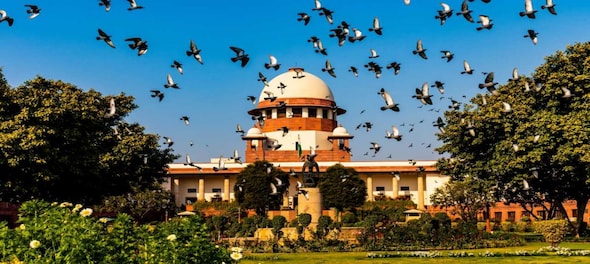
A five-judge bench of the Supreme Court is likely to pronounce a landmark judgment on the constitutionality of the abrogation of Article 370, and the reorganisation of the state into Union Territories of Jammu & Kashmir and Ladakh.
The verdice is likely to be pronounced at 10:30 AM. The five-judge bench will comprise of:
The hearing on this issue has stretched across 16 days with the apex court having reserved its judgment on September 5 this year. The arguments in the matter had commenced on August 2.
Petitioners challenging the legality of the move have told the Supreme Court that the abrogation of Article 370 was politically motivated and not constitutionally tenable. They further said that the Jammu & Kashmir constituent assembly did not decide on the satus of Article 370, allowing it to become permanent and that there is no constitutional mechanism available for a repeal.
Jammu & Kashmir had signed an instrument of accession but there was no transfer of sovereignity and that its autonomy ought to be maintained, according to the petitioners, who also said that the reorganisation of the state into Union Territories requires approval from the Jammu & Kashmir assembly for which no consent was sought or granted.
In response, the centre has maintained its stance to the court that due process was followed for the abrogation of Article 370 and that it was "not permanent" as it was classified as "temporary, transitional and special provisions" under Part XXI of Constitution.
On acceding to India by signing Instrument of Accession, Jammu & Kashmir surrendered sovereignity to India, said the Government, who also cited Karan Singh's proclaimation that the Constitution of India shall supersede and abrogate all other provisions with respect to the state.
Karan Singh is the son of Maharaja Hari Singh, the erstwhile ruler of Jammu & Kashmir when it signed the Instrument of Accession.
The government has also maintained that although the Union Territory status for Jammu & Kashmir is temporary, no timelines can be given for restoring statehood.
(Edited by : Hormaz Fatakia)
Check out our in-depth Market Coverage, Business News & get real-time Stock Market Updates on CNBC-TV18. Also, Watch our channels CNBC-TV18, CNBC Awaaz and CNBC Bajar Live on-the-go!


BJP is planning to ban RSS, says Shiv Sena (UBT) chief Uddhav Thackeray
May 18, 2024 8:01 PM
Punjab Lok Sabha elections: Complete list of Congress candidates
May 18, 2024 4:08 PM
Punjab Lok Sabha elections: Check full list of AAP candidates and constituencies
May 18, 2024 12:59 PM
PM Modi, Rahul Gandhi election rallies in Delhi today: Here are the routes to avoid
May 18, 2024 11:28 AM

